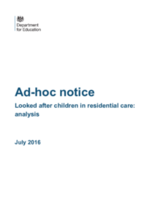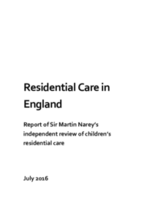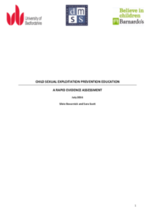

Displaying 1331 - 1340 of 1653
Save the Children is seeking a candidate with proven management skills for the position of Deputy Head of Child Protection in its Farringdon, London U.K. office.
Save the Children is seeking a Child Protection Adviser to support country programmes in designing and implementing high quality programming to protect children and support their families.
This paper analyzes the concluding sections of assessment reports on applicants for intercountry adoption in Sweden to answer the following question: what must be said about an individual or a couple in order for her/them to be seen as a suitable adoptive parent?
Establishing the context of this study of adoptive parenthood and open adoption, MacDonald describes the legal, policy, and social frameworks that shape the experience of adoptive parenthood. The role of adoption in child welfare policy is identified, specifically in the UK and USA where it provides permanence for significant numbers of children in State care.
This report from Research in Practice examines the wellbeing of children in care in the UK and the approaches to measuring wellbeing.
This analysis was produced as part of an independent review into children's residential care in England and provides data on children living in all types of residential care facilities in the country as of 31 March 2015.
On 28 October 2015 the Prime Minister of the UK told the House of Commons that he and the Secretary of State for Education had commissioned Sir Martin Narey to review residential care for children in England.
This briefing is based on a rapid assessment of the available evidence relevant to CSE prevention education. It brings together key messages from research and evaluation about what works to prevent sexual exploitation and promote healthy relationships.
This talk by Lucy Hurst-Brown from BBC Radio 4's, Four Thought series discusses the institutionalization, segregation, and isolation of people with disabilities, including young people, and its effects.
The aim of this event is to draw on lived-experience to inform the development of sensitive and inclusive safeguarding practices that respond appropriately to the diverse needs of children who live with parents who have mental health problems.



